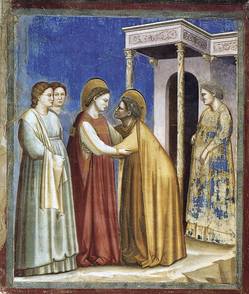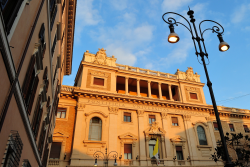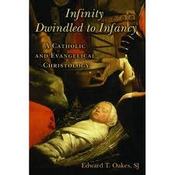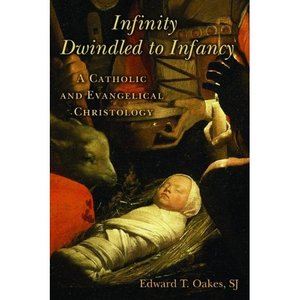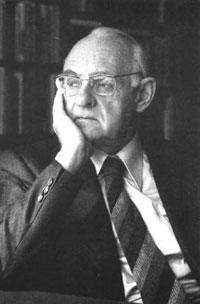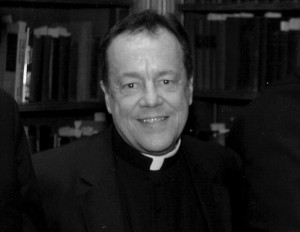 Today, one of the Church’s faithful sons died: Father Edward Talbot Oakes, S.J. He was a true and dear friend to me for many years. Edward turned 65 in May and was diagnosed very shortly thereafter with stage 4 pancreatic and liver cancer; he, like his late brother, were a-symptomatic creating a crisis of health without knowing it until it was late.
Today, one of the Church’s faithful sons died: Father Edward Talbot Oakes, S.J. He was a true and dear friend to me for many years. Edward turned 65 in May and was diagnosed very shortly thereafter with stage 4 pancreatic and liver cancer; he, like his late brother, were a-symptomatic creating a crisis of health without knowing it until it was late.
One of his many God-given gifts Ed shared with us was his vocation to be a public intellectual, a calling he fully embraced. Just a few weeks ago the Catholic journal on faith and culture, Logos (16.4), published his “Lab Life: Vitalism, Promethean Science, and Mary Shelley’s Frankenstein.” But in the past year Ed also published these articles: “Pope Benedict XVI on Christ’s Descent into Hell,” Nova et Vetera (Volume 11, Number 1, Winter 2013) and “Reason Enraptured,” First Things, (Number 232, April 2013).
Ed’s last significant work was on nature and grace that he finished in late summer and that I had the privilege of reading and acting as one his editors. It is titled, The Candle Within A Theology of Grace as Seen Through Six Controversies (expected from CUA Press).
While the world mourns Nelson Mandela, more locally –in various parts of the USA– many are mourning the loss of the person of Edward Talbot Oakes, a man who changed lives by revealing the face of Jesus Christ.
David Mills of First Things contributed this tribute to Ed.
Thank you, Ed, remember me (us) to the Lord of Life.
The following is the obituary published by the Socius of the Missouri Province of Jesuits. Much more can and will be said and appreciated.
… Father Edward T. Oakes, S.J. died this morning at the Fusz Pavilion in St. Louis, Missouri. He was 65 years old and a Jesuit for 47 years. Born in Kansas City, Missouri, on May 18, 1948, Ed entered the Society of Jesus at St. Stanislaus Seminary in Florissant, Missouri, on September 1, 1966. He completed a B.A. and an M.A. in Philosophy at Saint Louis University. After teaching English and Theater at St. Louis University High School from 1973 to 1976, Ed earned an M.Div. at Jesuit School of Theology at Berkeley. He was ordained to the priesthood at St. Francis Xavier (College) Church in St. Louis on June 15, 1979.
From 1980 to 1987, Ed studied at Union Theological Seminary in New York, where he earned a Ph.D. in Systematic Theology. Ed loved studies and pursued them with great eagerness. In 1987 he accepted a visiting professor position at New York University where he taught Theology and the History of Christianity until 1994.
After tertianship at Peter-Faver Kolleg in Berlin, Ed joined the Religious Studies faculty at Regis University in Denver, where he taught for six years. Ed’s enthusiasm for the intellectual life and his joyful personality were appreciated by members of the Jesuit community and his colleagues in the Religious Studies department.
Ed was a prolific writer. His works include Pattern of Redemption: The Theology of Hans Urs von Balthasar (New York: Continuum, 1994) and Infinity Dwindled to Infancy: A Catholic and Evangelical Christology (Grand Rapids: Eerdmans, 2011). The latter work, which provides a survey of doctrinal and historical issues in Christology, won the 2012 Book Prize from the Center for Catholic-Evangelical Dialogue. Ed contributed essays to numerous collections in Theology and regularly published articles in both refereed journals and Catholic periodicals.
In 2002, Ed became a professor of Theology at University of St. Mary of the Lake – Mundelein Seminary in Mundelein, Illinois. His colleagues on the faculty and the seminarians very much appreciated his presence there.
In May 2013, Ed was diagnosed with pancreatic cancer. At the time he wrote to his fellow Jesuits, spoke of his strong hope in God and quoted St. Paul: “Therefore we do not lose heart. Though outwardly we are wasting away, yet inwardly we are being renewed day by day.” For several months, Ed received chemotherapy to slow the growth of the cancer. He finished a writing project and returned to teaching for the fall semester. When his health began to worsen, Ed moved to St. Louis and joined the Pavilion community. He is survived by his sister, Elizabeth D. Oakes, and his sister-in-law, Joanne Oakes. May this joyful and dedicated man rest in peace.
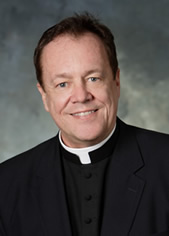 Since our Fr Edward T. Oakes, SJ, died yesterday morning at the Jesuit residence, St Louis, MO, several people have paid tribute.
Since our Fr Edward T. Oakes, SJ, died yesterday morning at the Jesuit residence, St Louis, MO, several people have paid tribute.
